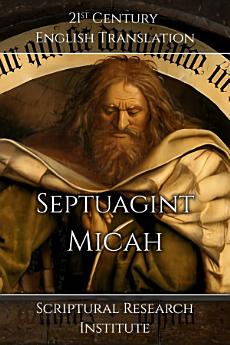Septuagint: Micah
Giới thiệu về sách điện tử này
While the Book of Micah is accepted by many as dating to the 8ᵗʰ century BC, the oldest fragments of it to survive to the present are Hebrew fragments of the Sheneim Asar found among the Dead Sea Scrolls written in the Aramaic script, dating to the Hasmonean era, and fragments of the Dôdeka dating to the same era. The Dôdeka’s fragments are quite similar to the later copies of Amos in the Septuagint manuscripts, and the Hebrew fragments found within the Dead Sea Scrolls are generally the same as the Aleppo Codex’s Amos, which shows the surviving texts have been copied accurately since around 100 BC.
All versions of the Book of Micah include strange text that are accepted as relics of ancient spelling errors. Most of these appear to have originated in a Demotic Egyptian translation that all modern versions of Micah descend from. There are a few Demotic Egyptian texts, such as Papyrus Amherst 63, which include polytheistic Israelite psalms dating to between the 7ᵗʰ and 3ʳᵈ century BC. During and after the Assyrian conquest of Samaria, and the Babylonian conquest of Judah, Israelites fled to Egypt, as well as the Carthage and other countries across the Mediterranean. The most obvious of these spelling errors is the reference to the daughters of Anat in chapter 1.











